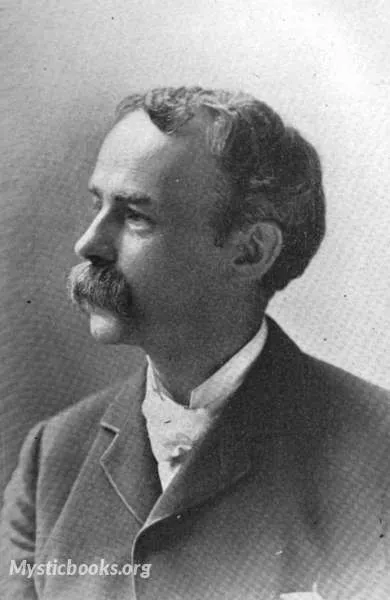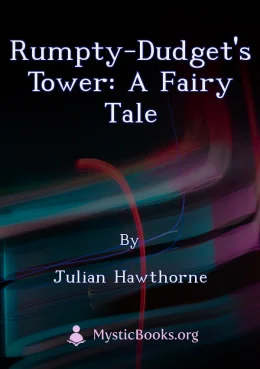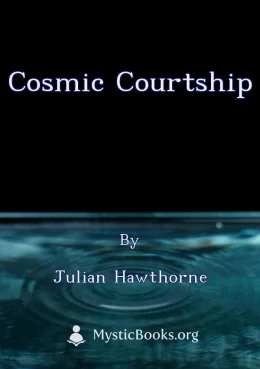
Timeline
Title
Country/Nationality
Julian Hawthorne
Julian Hawthorne was an American writer and journalist, the son of novelist Nathaniel Hawthorne and Sophia Peabody. He wrote numerous poems, novels, short stories, mystery/detective fiction, essays, travel books, biographies, and histories.
Julian Hawthorne was the second child of Nathaniel Hawthorne and Sophia Peabody Hawthorne. He was born June 22, 1846, at 14 Mall Street in Salem, Massachusetts. It was shortly after sunrise and his father wrote to his sister:
A small troglodyte made his appearance here at ten minutes to six o'clock, this morning, who claims to be your nephew and the heir of all our wealth and honors. He has dark hair and is no great beauty at present, but is said to be a particularly fine little urchin by everybody who has seen him.
Hawthorne entered Harvard College in 1863, but did not graduate. He was tutored privately in German by James Russell Lowell, a professor and writer who encouraged Nathaniel Hawthorne's work. It was during his freshman year at Harvard that he learned of his father's death, coincidentally the same day he was initiated into a fraternity. Years later, he wrote of the incident:
I was initiated into a college secret society—a couple of hours of grotesque and good-humored rodomontade and horseplay, in which I cooperated as in a kind of pleasant nightmare, confident, even when branded with a red-hot iron or doused head-over heels in boiling oil, that it would come out all right. The neophyte is effectively blindfolded during the proceedings, and at last, still sightless, I was led down flights of steps into a silent crypt and helped into a coffin, where I was to stay until the Resurrection ... Thus it was that just as my father passed from this earth, I was lying in a coffin during my initiation into Delta Kappa Epsilon.
While in Europe Hawthorne wrote several novels: Bressant (1873); Idolatry (1874); Garth (1874); Archibald Malmaison (1879); and Sebastian Strome (1880). Hawthorne prepared an edition of his father's unfinished work Dr. Grimshawe's Secret (1883). His sister Rose, upon hearing of the book's announcement, had not known about the fragment and originally thought her brother was guilty of forgery or a hoax. She published the accusation in the New York Tribune on August 16, 1882, and claimed, "No such unprinted work has been in existence ... It cannot be truthfully published as anything but an experimental fragment". He defended himself from the charge, however, and eventually dedicated the book to his sister and her husband George Parsons Lathrop.
In 1908, Hawthorne's old Harvard friend William J. Morton (a physician) invited Hawthorne to join in promoting some newly created mining companies in Ontario, Canada. Hawthorne made his writing and his family name central to the stock-selling campaigns. After complaints from shareholders, both Morton and Hawthorne were tried in New York City for mail fraud, and convicted in 1913. Hawthorne was able to sell some three and a half million shares of stock in a nonexistent silver mine and served one year in the Atlanta Federal Penitentiary.
Upon his release from prison, he wrote The Subterranean Brotherhood (1914), a nonfiction work calling for an immediate end to incarceration of criminals. Hawthorne argued, based on his own experience, that incarceration was inhumane, and should be replaced by moral suasion. Of the fraud with which he was charged he always maintained his innocence.
After his release from prison on October 15, 1913, Hawthorne returned to work as a journalist in Boston for the Boston American, for which he covered baseball spring training and interviewed George Stallings and Babe Ruth. He resigned from the publication in November and moved to California, where he contributed to publications like the Los Angeles Herald and pitched movie screenplays which were never produced. He also shared a home with his lover Edith Garrigues. His wife Minne was living with family in Redding, Connecticut. After her death on June 25, 1925, Hawthorne and Garrigues officially married on July 6 after nearly two decades as a couple. In the summer of 1933, Hawthorne suffered from a flu, from which he was never fully healthy again. He suffered two heart attacks before dying on July 14, 1934. His funeral was private and after his body was cremated, his ashes were scattered along Newport Beach, California.
Books by Julian Hawthorne

David Poindexter's Disappearance and Other Tales
Hook: "Unravel the enigmatic and delve into the depths of human nature in this mesmerizing collection of tales that blend mystery, the supernatural, and the complexities of the human psyche." Step into a world of intrigue and uncertainty in "David Po...

Rumpty-Dudget's Tower: A Fairy Tale
Rumpty-Dudget's Tower is a charming fairy tale about a mischievous dwarf named Rumpty-Dudget who lives in a magical tower. He embarks on a quest to find the golden Ivy-seed, diamond water-drops, and magic fire. Along the way, he meets Princess Hilda...

Cosmic Courtship
Mary Faust, a brilliant scientist, has developed a machine that can allow the conscious human soul to explore the cosmos. Her assistant Miriam Mayne accidentally transfers her consciousness to Saturn, where she falls under the influence of a malevole...